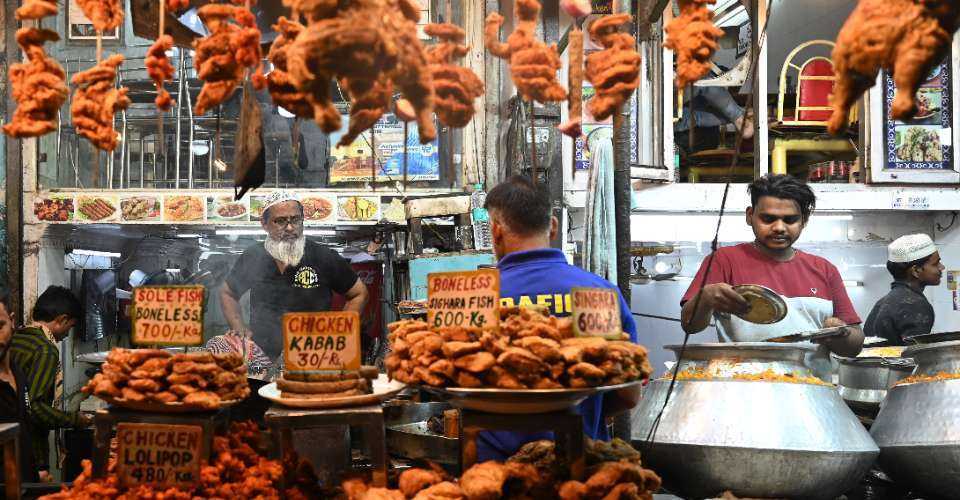
Food vendors prepare food at a restaurant near the Jama Masjid during the holy month of Ramadan in the old quarters of New Delhi on April 19, 2023. (Photo: AFP)
Activists have joined political leaders in condemning police in two states demanding eateries to display the names of their owners amid criticism that it creates a religious divide, particularly during the ongoing Hindu pilgrim season.
India’s Supreme Court on July 22 temporarily suspended the rules imposed last week by police in the northern states of Uttar Pradesh and Uttarakhand – both ruled by Prime Minister Narendra Modi’s pro-Hindu Bharatiya Janata Party (BJP).
Thousands of Hindu pilgrims walk on a pilgrimage known as “Kanwar Yatra” to collect holy water from the Ganges river. They pass through the two neighboring states during the holy month of Shravan, the fifth month of the Hindu calendar, which begins on July 22.
They ritually carry the water in containers suspended on either side of a pole, a contraption known as “Kanwar.” The water is then offered at a Shiva temple in their villages.
The Supreme Court’s interim order said eateries need not specify their owners’ names outside but should display the food items on offer.
The court has asked for the responses of both the states and will take up the matter again on July 26.
The Uttar Pradesh government, the first to impose the rule, said it was meant to maintain the purity of the pilgrims, who follow dietary restrictions and are vegetarians.
Also, many devout Hindus refrain from eating meat and fish during the holy month.
But detractors of the move, including allies of the BJP, said the rule was meant to stop the pilgrims from patronizing eateries owned by Muslims.
Both Uttar Pradesh and Uttarakhand have witnessed simmering sectarian tensions in the recent past, with critics accusing the two states’ BJP governments of targeting minority Muslims.
“We condemn the move as it may have caused tension among different religions, especially Hindus and Muslims,” said Minakshi Singh, a Christian activist based in Uttar Pradesh.
Singh, general secretary of the charity Unity in Compassion, said such directives should not have been issued in the first place.
Muhammad Arif, chairman of the Centre for Harmony and Peace, said the directives are “a part of the BJP’s hidden agenda to divide people” and “treat Muslims as second-class citizens.”
“The rules are unconstitutional, and the state governments should immediately take them back,” he added.
Arif said such decisions by state governments damage India’s international reputation.
Meanwhile, the Uttar Pradesh government has also prohibited the sale and purchase of meat along the pilgrimage routes as a mark of “respect.”
Congress leader Pawan Khera criticized the directives. “We cannot allow the BJP to push the country back into dark ages… and to normalize the economic boycott of Muslims.”
Samajwadi or Socialist Party leader Akhilesh Yadav said it is a “social crime” and urged the courts to “take appropriate punitive action.”
Asaduddin Owaisi, a Muslim parliamentarian from southern India, likened it to apartheid in South Africa and discrimination against Jews in Nazi Germany.

